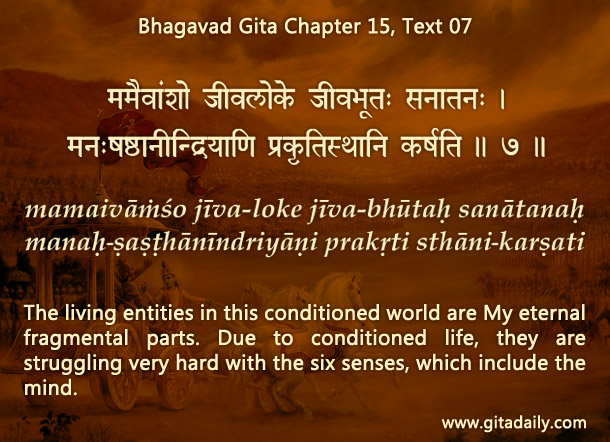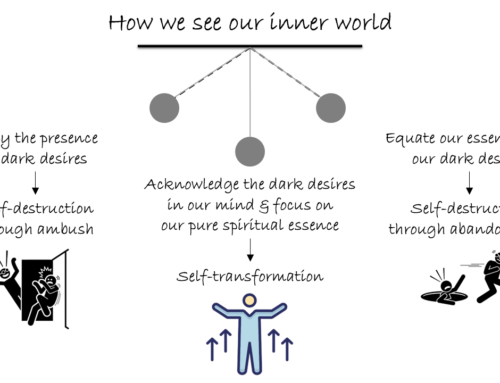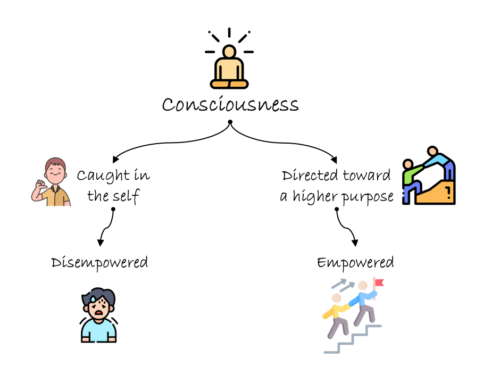Suppose a thief has broken into a house’s premises. In one sense, the thief is outside the house, being in the courtyard. But in another sense is inside the house in the sense of being inside the premises. If the house’s main security is at the gate of the premises, not the door of the house proper, then the thief has essentially broken into the house.
The key point here is that what is considered outside and what, inside varies depending on the reference point. What applies to the house applies to us too. As we identify ourselves with our body, we consider things outside our body external and those inside our body internal.
But Gita wisdom explains that we are not our body – we are the soul inside the body. And the soul is covered by not just the body, but also the mind. So, from the soul’s perspective, the mind is external, though from the body’s perspective, the mind is internal. And dangerously for us, the mind is already filled with worldly cravings that impel us eternal beings to the vain pursuit of temporary pleasures.
Such cravings are akin to thieves that have already breached through our major defenses. Why? Because they have entered into our mind, thereby making us misidentify them as our own desires instead of recognizing them as intruders who have somehow slipped in. Significantly, the Bhagavad-gita (15.07) groups the mind with the senses, indicating that they together cause the soul to struggle in material existence, sentencing ourselves to unnecessary suffering.
How can we protect ourselves? By serious scriptural education and diligent devotional purification, we can break free from the body-based conception of external and internal – and cultivate the soul-based conception that will help us act cautiously and wisely for our best interests.
Explanation of article:




Leave A Comment